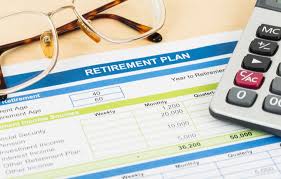If you have some cash saved up, you won’t have to worry as much about an unexpected bill. Money experts often say that you should have enough savings to cover three to six months of living costs. So, once you decide on a savings goal, you can start building up your financial safety net. Calculate how much your biggest monthly expenses cost on average to get an idea of how much you’ll need to save or how long three to six months of savings will last you. You could start by taking a look at your most recent financial statements. In the meantime, this article will cover comprehensively how much money you should have in your savings account at ages 25, 30, and 40.
Overview
Again, there is no ideal number that works for everyone when it comes to saving money. Basically, you should save enough money to meet your living expenses for three to six months. How much will depend on how you live.
As earlier mentioned, to determine how much of your salary to save, you must first know how much you spend each month. When making a budget, there are two main types of costs to think about fixed costs and variable costs. Costs that are fixed each month tend to stay the same. These costs may be very important to you. There are many different kinds of fixed costs.
- The cost of rent or a mortgage.
- How much do utilities cost?
- Mobile phones and access to the internet.
- Insurance.
If you pay the same amount toward your debt each month, you could consider it a fixed expense. The money you pay for alimony or child support would also go here.
Variable costs, on the other hand, change from one month to the next. There are two kinds of costs: those that are necessary and those that are not. Here are some examples of costs that can change:
- Groceries.
- Money spent on gas and getting around.
- Entertainment.
- Hobbies.
- Clothing.
- Travel.
- Having a good meal while away from home.
After knowing your monthly spending, you can use “three to six months of living expenditures” in two ways. Your emergency savings goal doesn’t have to be based on your spending or what you’d have if you cut back. The more you can cut or stop spending on things you don’t need, the further your money will go.
How Much Should I Have in Savings at 30
When you have savings from 18 until you are 30, you will have about $47,000. It’s recommended that by the time you’re in your 40s, you’ve saved enough money to cover a year’s worth of expenses. The median weekly wage for full-time workers between the ages of 25 and 34 in the U.S. is $513. According to the BLS, the median weekly wage for all jobs in the first quarter of 2021 was $901, which is $46,852 a year.
Starting a family, buying a house, or starting a business in your 30s requires a nest fund. Consistency is the key to financial success. Keep your long-term goals in mind and don’t put all your savings eggs in the short-term basket.
According to the Federal Reserve’s 2019 Survey of Consumer Finances, under-35s have $13,000 in retirement accounts. For people the same age, the median savings account balance is $3,240 and the median bank balance is $14,000.
Also, the poll found that just over 40% of people under 35 have student loan debt, with a median total of $22,000. Nearly half of all Americans have credit card debt, with a mean balance of $1,900.
How to Have Savings When You’re 30
Don’t worry if you’re 30 and haven’t started your savings for retirement yet. You still have at least 30 years left on the job. Consider the following tips to get back on track with your financial goals:
#1. First, You Should Save Money for Times of Crisis
No matter how old you are, you should always have at least three to six months’ worth of living expenses saved up in case of an emergency. But it’s more important when you’re in your thirties than when you’re in your twenties when you’re more likely to buy a house and start a family.
#2. Think About Making Payments to Your 401(K) And Roth IRA
Many people choose a Roth IRA because they can give up a tax break now, when their tax bracket may be lower, in exchange for tax-free income in retirement. Not only that, but you can take out your contributions (but not your earnings) whenever you want without being taxed or fined. The maximum IRA contribution for those under the age of 50 in 2021 and 2022 is $6,000.
#3. Try to Go for the Riskier Choice
When you’re only 30 years old, retirement is a long way off. If the stock market crashes, you shouldn’t worry too much because the value of your portfolio will probably rise again in the long run. If you are starting late, it is very important to take on enough risk to make a lot of money. Don’t invest in anything that makes your heart beat fast, but don’t be afraid to take risks either.
#4. Put Money Away for Your Retirement, Then for Your Children’s Education
Don’t count on your kids to help you pay for your old age. Before putting money away for their college, you should focus on saving for your own emergency fund and retirement.
How Much Should I Have in Savings at 40
Most people in their 40s are done paying off their school loans, but they still have to make payments on their homes and pay for other family expenses, like their kids’ activities and college. The good news is that they’ve finally reached the top of their field after twenty years of hard work. You should have savings of between $17,799 and $35,599 by the time you are 40.
You should have saved at least $185,811 by the time you retire (three times your annual income). It’s a good idea to start by getting out of debt and putting as much as you can into your 401(k). If your company doesn’t have a 401(k) plan or you already have one, you might want to open an IRA to take advantage of the tax benefits it offers (k).
People often think about making big changes in their lives in their forties, like changing careers, saving for their kids’ college, or retiring early. Savings at 40 can help you get to any place you want to go. If you want to be financially secure now and in the future, you should try to save at least $999 every month.
Fidelity Investments, a company that helps people set up retirement plans, says that if you want to retire at age 67, your savings should be three times your salary by age 40. This rule of thumb applies to all of your investments, including those in index funds or through robo-advisors, as well as your 401(k) and/or IRA contributions.
How Much Should I Have in Savings at 25
Putting money away at age 25 might be just as hard as putting money away at age 21. If you’ve been living on a median income of $32,656 for the last three years, money is probably tight for you. You probably won’t be able to save 20% of your income unless you have a significant other who helps pay for your living costs.
If you are 25 years old and have savings of $20,000, you are doing better than the average American. In 2018, families of all ages, not just those in their twenties, had a median savings account balance of $5,300, according to the Federal Reserve’s 2019 Survey of Consumer Finances.
Most experts agree that by the time a person is 25 years old, they should be putting away at least 10% of their income. One of the worst things a young person can do is put off saving money until later in life.
If you save 10% of each paycheck and still have money left over, you might feel comfortable raising the amount you save each month. You should also start saving for your retirement. At 25, you are at a turning point in your career and your finances.
Tips for People Around 25 on Their Savings
Even if you can only save 5 or 10 percent of your salary at first, that’s a good start. Just make it your goal to save more and more of your money as your salary goes up. Try these things to save more money over the long term:
#1. Start by Saving Money for Emergencies
Your top priority should be to put away enough money for bills and living costs for three months. That’s money you put in a savings account instead of the stock market, so you can get it quickly if you need it.
#2. Before Paying off Student Loans, You Should Pay Off Your Credit Card Debt
Unless you have private student loans with very high-interest rates, most of your money probably goes toward paying off your credit card debt. Pay off your credit cards first, then any school loans you have.
#3. Start a Side Job
Even though not everyone has the time or energy to get a second job, it can be very profitable, especially when you are young. If you start saving money when you’re young, the effect of compound interest on your investments grows at a very fast rate.
How Much Should I Have In My Savings Account
It’s a matter of personal finance to decide how much of your income you should save. The point of a savings account is to collect deposits, not to make it easy to take money out often. Most savings accounts only let you take money out a maximum of six times per month. They give you a place to save money for things other than your regular bills, like an unexpected expense or a long-term goal like a trip.
But because of how the COVID-19 pandemic affected the economy, the Federal Reserve made a temporary rule that lets banks take money out of savings accounts more than six times per month. Instead, there is no limit on how many times a customer can access their money or send money to someone else. You should talk to your bank about how this change will work since they are not required to do it.
You should save $30,000 if you need $5,000 a month to live. This is the amount that most financial experts say you should save. Suze Orman, a money expert, says that if you lose your job, you should have enough money in the bank to last for eight months. Some experts say you only need three months if you have little debt, a large emergency fund made up of liquid investments, and good insurance.
What Is a Good Amount to Have in Savings?
Most financial experts say you should have at least three to six months’ worth of living costs saved up in a mix of high-yield savings accounts and CDs with shorter terms. But if you’re worried that a long-term emergency will use up all your savings, you may want to save instead for nine to twelve months’ worth of costs.
When I Turn 30, What Should My Financial Goal Be?
If you save from the time you are 18 until you are 30, you will have about $47,000. It’s recommended that by the time you’re in your 40s, you’ve saved enough money to cover a year’s worth of expenses.
How Much Savings Should You Have 25?
By the time you turn 25, you should have savings of at least six months’ worth of living costs. The more of them, the better. So, if you spend $50,000 a year, you should be able to put away around $25,000. If you spend $100,000 a year, you need at least $50,000 in savings.
How Much Savings Should I Have by 20?
You might be able to comfortably increase the amount you’re saving each month if you start at 10% and discover that you still have money in your account by the time you get your next paycheck should have just over $7,000 saved by the time you’re 21.
How Much Money Should I Save a Month?
One of the most often used budgeting rules is the 50/30/20 rule. The advice is to save 20% of your income and spend 50% on basic needs. For example, if you make $8,000 a month, you should save $1,600.
How Much Money Should You Have by Age?
Fidelity says that you should save at least 10 times your annual salary by the time you are 30 so that you can retire comfortably at age 67. Your savings goal for retirement should be based on when you want to retire and how well you want to live.
Conclusion
Whenever you save money, it’s a good idea to think about what you want and what you need. Changes in costs, whether they go up or down, could affect your savings goals. If you keep a close eye on your finances, you’ll be able to make the necessary changes to your savings plan to make sure you never run out of money when something unexpected comes up. The budget is the place where everything starts. Don’t risk not being able to save anything at all by not making a budget. Don’t you have a plan for your money? Now is the time to make one, or at least make your old plans better.
- 401K Balance By Age: Everything You Should Know
- HOW TO SAVE MONEY FOR A HOUSE: Simple Tips
- HOW TO SAVE FOR A HOUSE IN 2023: Ultimate Guide
- SAVINGS ACCOUNT: Definition and How to Open One
- HOW MUCH SHOULD YOU SAVE A MONTH?: Do I Even Have to Save?






